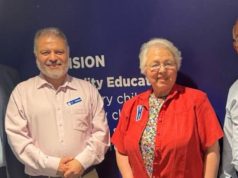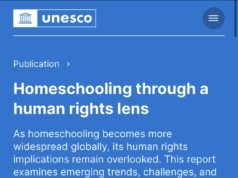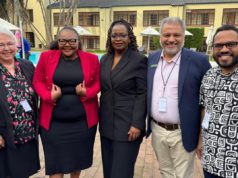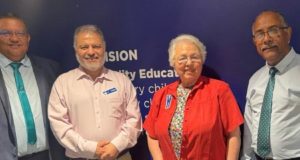
This year’s first meeting of the Gauteng Home Educators Joint Liaison Committee (GHEJOLT) took place on the 28th of February. The basis of the meeting’s agenda was responding to frequently asked questions raised by registered parents. Representatives of the Trust were present, among other stakeholders, and some interesting points, particularly around the use of alternative curricula, were discussed.
The Gauteng Department of Education (GDE) shared some relevant statistics. 875 registration applications for home education had been received between the beginning of the year, and the date of the meeting. 470 of these had been processed, while 20 were denied because the GDE does not recognise tutor centres.
Due to the large number of applications, the Department of Basic Education (DBE) is developing an online system to streamline the process of applying for home education.
The GDE was disappointed by the turnout at the Home Education Meeting, having sent over two thousand invitations, and only receiving 213 attendants, with 116 sending their apologies.
The GDE explained the registration process, provided an outline of assessment programmes, and clarified that registration certificates are valid for three years, or per phase. Registration every year is therefore not required. They also clarified that parents who do not use CAPS are not expected to follow a CAPS assessment schedule, but are expected to keep a portfolio of evidence. The Gauteng Department of Education encourages the voluntary submission of reports for grades other than 3, 6, and 9, as they would like home schoolers to appear on the national database with other children, in order to demonstrate that home schooling is alive and well.
Home visits have been a matter of concern in the home schooling community, so we are pleased to report that the GDE seems to be taking a relaxed approach, contacting a random selection of 80 parents out of a sample of more than 520, and asking to conduct a visit. The visits are considered an offer of support, and are not compulsory. In fact, some parents have specifically volunteered for visits.
Parents were encouraged to use resources aligned with their chosen curriculum, as the DBE does not provide resources except in certain exceptional circumstances. They have collected links to some resources, in order to assist without diverting resources from processing applications. The GDE does not provide resources.
Some home schoolers have experienced difficulties when returning to brick and mortar schooling. District offices will offer support to those refused admission when applying to return to school. When attempting to return to school, parents should approach the school in the preceding year, and provide a portfolio of evidence, the last available school report, their home education reports, and their home education registration certificate.
A brief description of what service providers should be doing to support parents – and what parents should expect – was given. It was emphasised that service providers do not register with the DBE, and are therefore not regulated. Additionally, the Department does not approve applications for home education in cases where learners attend tutor centres. Tutor centres are still considered illegal, and parents were requested to refrain from using them. Tutor centres are required to register as independent schools. The GDE has previously requested that cottage schools/micro-schools/tutor centres etc. form associations and approach the DBE so they can start discussing how they could obtain recognition.
Finally, learners using online options can currently be registered for home education. However, once the draft framework for online schools (said to be in the final stages of its development) has been finalised, online learners will be referred to the DBE.
The overall approach of the GDE is positive, but further clarity is required, particularly on the exact meaning of phrases such as “formal assessments” and “portfolio of evidence”.
We hope to gain more details at the next GHEJOLT meeting and will continue to work with the GDE to increase their understanding of home schooling practice .





